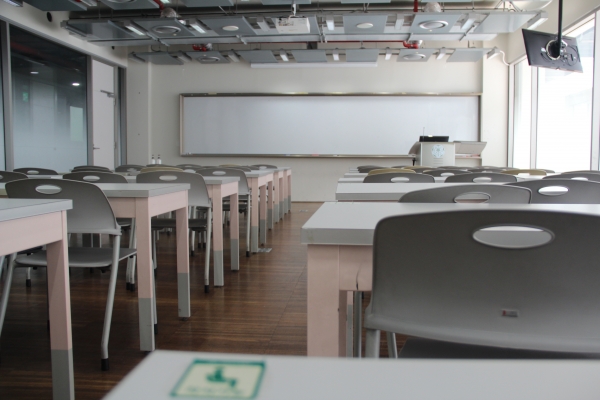
Official statistics show that 753 colleges in the United States stressed that a return to a normal campus life depends on faculty, staff, and students receiving the vaccine. While college students may be among the last in line to be inoculated, most became eligible to receive their first vaccinations on Aug. 19. However, whether students choose to get the vaccine is another question.
On Aug. 9, the school officially announced the extension of online classes in the fall semester from at least two weeks to a month. Students have also been notified about the vaccination schedules. With COVID-19 vaccines available to people aged 18 to 49 beginning Aug. 26, students were informed about reservation schedules starting from Aug. 9.
The Office of Faculty & Academic Affairs has stated that the school has no official plans on following up on students’ inoculation status or restricting access to on-campus classes to those not vaccinated as whether or not to receive a vaccination is a personal decision.
According to a survey of 109 students conducted by Ewha Voice from Aug. 17 to Aug. 23, 47 percent replied that they have received at least one dose of vaccine. Among the surveyed students who are not inoculated, only eight replied that they are not planning to get inoculations. One student explained that an experience of anaphylactic shock in reaction to antibiotics has made her hesitant to receive the vaccine. Others explained their concerns about side-effects as their reason for refusing vaccination.
Further data from the survey showed that 65.1 percent replied that the school should not make vaccinations mandatory. Most students who disagreed with mandatory vaccines cited the students’ freedom of choice as the reason for their assertion.
Among those who resisted mandatory vaccination, one student replied that she cannot get inoculated on medical grounds, asserting that the concept of mandatory vaccines is unreasonable. Several surveyed students added that because the school cannot provide vaccines nor can they be held responsible for the consequences of the inoculations, it is unreasonable to mandate inoculations.
Those who agreed to mandate inoculations stated the safety of on-campus classes as their reason. Nearly half replied that the concept of mandatory vaccines is the road to end the online classes, and that requiring inoculations is the least the school can do for the students.
Shen Yu-yan, a senior in the Division of Communication & Media explained why she chose to be inoculated. Shen received her first dose of Pfizer vaccine on Aug. 9 mainly because she wanted to safely return to her family members and friends in China during the winter vacation.
“Inoculation is like wearing a mask,” Shen said. “For instance, Chinese food service workers must be vaccinated to normalize business. People chooserestaurants based on whether or not there is a vaccination completion sign at the entrance. Likewise, if the school decides to conduct in- person classes at some point, I think it is beneficial to make the vaccine mandatory for the sake of everybody on campus.”
Wu Yue-bing, a senior in the Department of Statistics, got her vaccines in China and came back to Korea after her vaccinations. She received her final doses of the Sinovac-CoronaVac vaccine in February.
“Due to the outbreak of the pandemics, I chose to stay in China until this year,” Wu said. “In January, I decided to return to school and finish my last year of study in Korea. I was extremely concerned about the risk of being infected after arriving at Seoul, so I reserved the vaccine online. After a month, I got vaccinated in Beijing.”
Wu said she showed no side effects, but for those who experience side effects after their first doses of the vaccine, she disagreed with the concept of mandatory vaccines.
“There are some students who need to keep an eye on the status quo for now due to immunity issues, like myself,” said a student who wished to remain anonymous. “However, I partly agree with the concept of mandatory vaccines. Even if it is not fully mandatory, I think in-person classes should open solely to those who have received their final doses of vaccine.”
She concluded that every student should respond to the vaccination issues according to their free will and showed her hopes for a safe campus full of energetic students.

